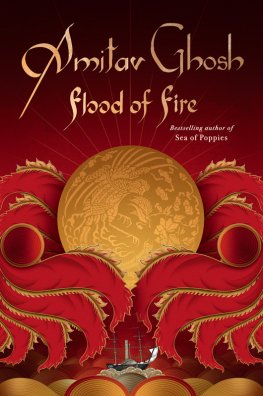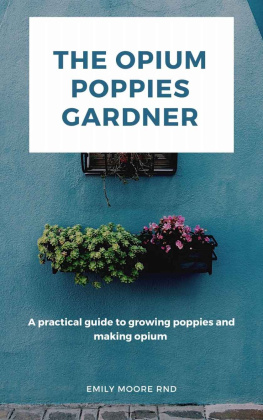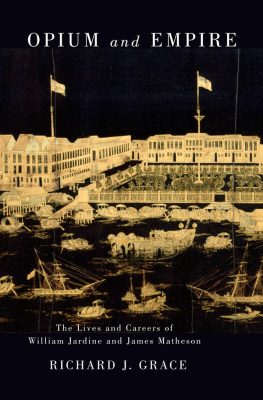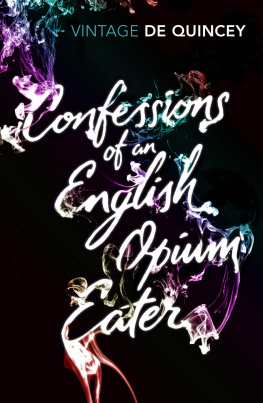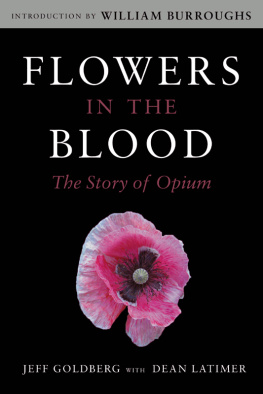ELLEN N. LA MOTTE
AUTHOR OF "BACKWASH OF WAR," "PEKING DUST,"
"CIVILIZATION," ETC.
New York
THE MACMILLAN COMPANY
1920
All rights reserved
Copyright , 1920
By THE MACMILLAN COMPANY
Set up and electrotyped. Published January, 1920.
"If this was our battle, if these were our ends,
Which were our enemies, which were our friends?"
Witter Bynner, in The Nation.
CONTENTS
| Chapter | Page |
| Introduction |
| I. | Great Britain's Opium Monopoly |
| II. | The Indian Opium Monopoly |
| III. | Japan as an Opium Distributor |
| IV. | Singapore |
| V. | The Straits Settlements Opium Commission |
| VI. | Opium in Siam |
| VII. | Hongkong |
| VIII. | Sarawak |
| IX. | Shanghai |
| X. | India |
| XI. | Turkey and Persia |
| XII. | Mauretius |
| XIII. | British North Borneo |
| XIV. | British Guiana |
| XV. | History of the Opium Trade in China |
| XVI. | Conclusion |
INTRODUCTION
We first became interested in the opium traffic during a visit to the Far East in 1916. Like most Americans, we had vaguely heard of this trade, and had still vaguer recollections of a war between Great Britain and China, which took place about seventy-five years ago, known as the Opium War. From time to time we had heard of the opium trade as still flourishing in China, and then later came reports and assurances that it was all over, accompanied by newspaper pictures of bonfires of opium and opium pipes. Except for these occasional and incidental memories, we had neither knowledge of, nor interest in the subject. On our way out to Japan, in the July of 1916, we met a young Hindu on the boat, who was outspoken and indignant over the British policy of establishing the opium trade in India, as one of the departments of the Indian Government. Of all phases of British rule in India, it was this policy which excited him most, and which caused him most ardently to wish that India had some form of self-government, some voice in the control and management of her own affairs, so that the country could protect itself from this evil. Without this, he declared, his country was powerless to put a stop to this traffic imposed upon it by a foreign government, and he greatly deplored the slow, but steady demoralization of the nation which was in consequence taking place. As he produced his facts and figures, showing what this meant to his peoplethis gradual undermining of their moral fiber and economic efficiencywe grew more and more interested. That such conditions existed were to us unheard of, and unbelievable. It seemed incredible that in this age, with the consensus of public opinion sternly opposed to the sale and distribution of habit-forming drugs, and with legislation to curb and restrict such practices incorporated in the laws of all ethical and civilized governments, that here, on the other side of the world, we should come upon opium traffic conducted as a government monopoly. Not only that, but conducted by one of the greatest and most highly civilized nations of the world, a nation which we have always looked up to as being in the very forefront of advanced, progressive and humane ideals. So shocked were we by what this young Hindu told us, that we flatly refused to believe him. We listened to what he had to say on the subject, but thinking that however earnest he might be, however sincere in his sense of outrage at such a policy, that he must of necessity be mistaken. We decided not to take his word for it, but to look into the matter for ourselves.
We did look into the matter. During a stay in the Far East of nearly a year, in which time we visited Japan, China, Hongkong, French Indo-China, Siam and Singapore, we looked into the matter in every country we visited. Wherever possible we obtained government reports, and searched them carefully for those passages giving statistics concerning the opium tradethe amount of opium consumed, the number of shops where it was sold, and the number of divans where it was smoked. We found these shops established under government auspices, the dealers obtaining their supplies of opium from the government, and then obtaining licenses from the government to retail it. In many countries, we visited these shops and divans in person, and bought opium in them freely, just as one goes to a shop to buy cigarettes. We found a thorough and complete establishment of the opium traffic, run by the government, as a monopoly. Revenue was derived through the sale of opium, through excise taxes upon opium, and through license fees paid by the keepers of opium shops and divans. A complete, systematic arrangement, by which the foreign government profited at the expense of the subject peoples under its rule. In European countries and in America, we find the governments making every effort to repress the sale of habit-forming drugs. Here, in the Far East, a contrary attitude prevails. The government makes every effort to encourage and extend it.
Two notable exceptions presented themselves. One was Japan. There are no opium shops in Japan, and the Japanese Government is as careful to protect its people from the evils and dangers of opium as any European country could be. It must be remembered, however, that Japan is a free and independent country. It has never been conquered by a European country, and perhaps one explanation as to why the Japanese are a powerful, virile people, is because Japan is the one Oriental nation that has never been dominated by a European power, and in consequence, never drugged.
The other exception is our own possession of the Philippines, which although a subject country, has never had the opium traffic established as part of the machinery of an alien government.
On our return to America, we were greatly exercised over these facts which we had unearthed. We continued our researches as to the opium traffic in the New York Public Library, and in the Library of Congress, in Washington, in both of which places there is a rich and abundant literature on the subject. We obtained ready access to official blue books and government reports, issued by the British Government, and it is from these sources that the material in this book is largely drawn. We were somewhat hampered in our investigations by the fact that because of the war, these blue books have not always been of recent date, some of them being two or three years old. For this reason, it has not always been possible to give the most recent figures as to opium consumption and distribution in the various countries. However, we feel that we have obtained enough information to uphold our case, and in any event, there is no doubt that the opium traffic, as fostered by the British Government, still continues. In looking over the list of British colonies where it is established, we may find here and there a diminution in the amount of opium consumed, but this is probably due to the exigencies of war, to the lack of shipping and transportation, rather than to any conscientious scruples or moral turnover; because the revenue derived from the opium trade is precious. In some instances, as in the case of the Straits Settlements, the local British Government derives from forty to fifty per cent of its revenue from this source. Yet, taken in relation to the whole, it is not large. However valuable it may be, however large the percentage in the case of any particular colony, it can surely never be large enough to compensate for the stigma attached. It is a blot upon the honor of a great nation to think that she deliberately runs her colonies on opium. No revenue, whether large or small, can be justified when coming from such a source as this.


